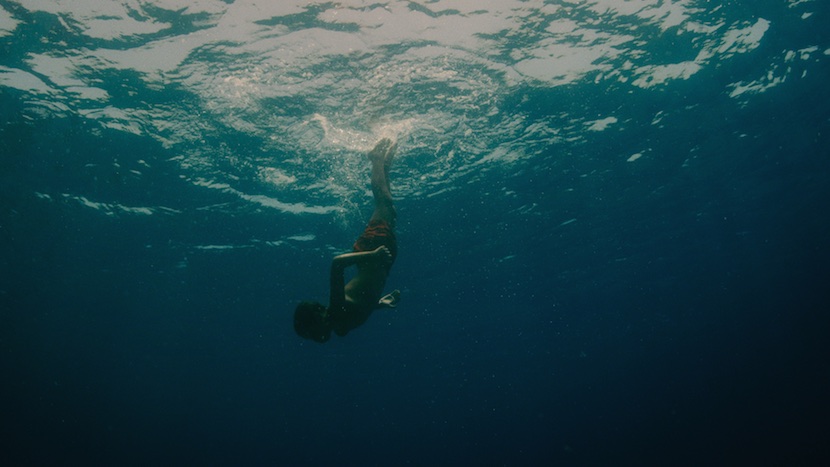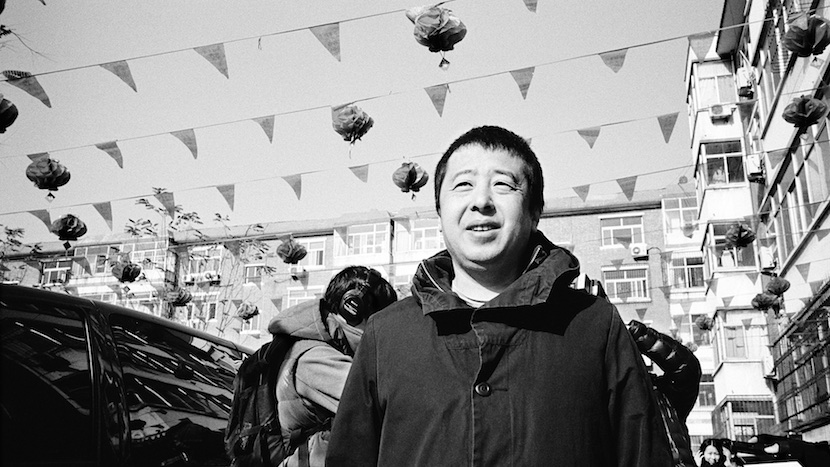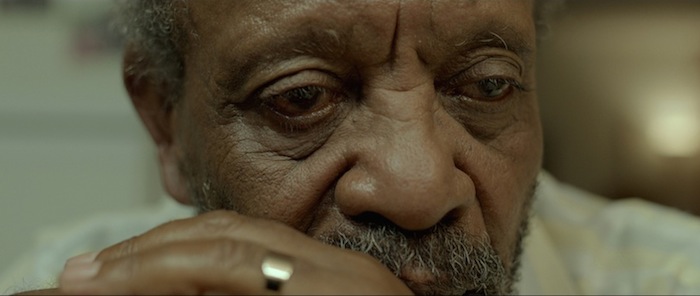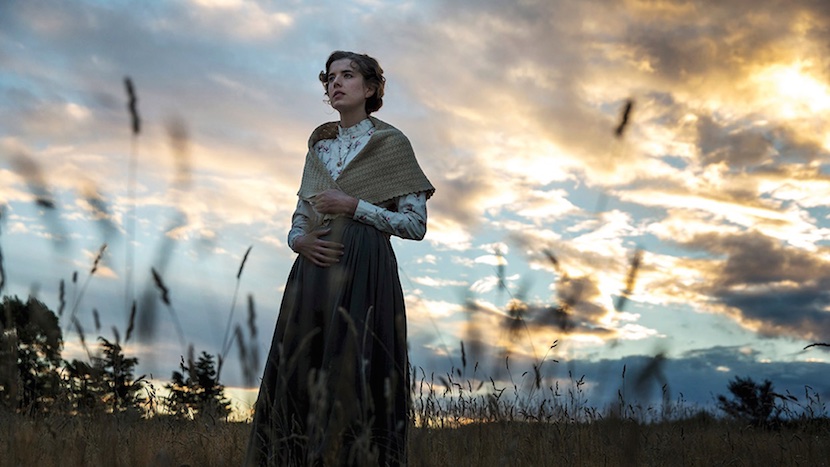My top 25 picks for London Film Festival 2015

I arrived in London a few days ago to attend the 59th London Film Festival which is on from 7th - 18th October 2015. I am currently attending the press screenings which will continue during the festival and will try to attend some public screenings if tickets are available.
This year's edition includes 238 fiction and documentary features, including 16 World Premieres, 8 International Premieres, 40 European Premieres and 11 Archive films including 5 Restoration World Premieres. There will also be screenings of 182 live action and animated shorts, plus a line up of talks. The complete London Film Festival 2015 schedule and more information can be found here.
Below is my list of top 25 films to see. If you're on Twitter, you can follow my daily updates here and look out for a more extensive update and reviews after the festival.
Arabian Nights
Volume 1: The Resltess One (125 min)
Volume 2: The Desolate One (131 min)
Volume 3: The Enchanted One (126 min)
Director: Miguel Gomes
Portuguese director Miguel Gomes (Tabu) sets out to adapt the Arabian Nights, but is racked by anxiety about undertaking such a venture in today’s economic crisis. His solution is to create something that confronts Scheherezade’s stories with real-life tales gleaned from the experiences of Portuguese people grappling with hard times. The result is a unique hybrid that takes in housing projects and palaces, punk rockers and princesses, baliffs and caliphs – an encyclopedic sprawl of a film that mixes fantasy, documentary, docu-fiction, Brechtian pantomime and echoes of MGM musical. Non-professionals – sometimes playing characters, sometimes being themselves – mingle with genies, wizards, camels, dogs and IMF economists, all to a deliriously eclectic soundtrack. Whether watched as three stand-alone films, or as one vast, ever-mutating triptych, Arabian Nights is a uniquely radical artistic response to political realities – and a hugely entertaining celebration of the power of cinema and storytelling.
.
The Assassin
Director: Hou Hsiao-Hsien
The Best Director winner at this year’s Cannes Film Festival, Hou Hsiao-Hsien is the subject of a major retrospective – Also Like Life – at BFI Southbank this September, ahead of LFF’s UK premiere of his mesmerising first foray into wuxia (martial arts). Breathtakingly elegant and ravishing in its composition, The Assassin is set in 9th-century China towards the end of the Tang dynasty. Lethal assassin Nie Yinniang (the incandescent Shu Qi, star of Hou’s Three Times and Millennium Mambo) fails an important assignment and is sent back to her homeland on the orders of the nun who abducted her as a child and trained her in the deadly arts. Her new orders, designed to both punish her and eliminate the last vestiges of feeling in her being, are to kill the man to whom she was once betrothed – her cousin, the powerful governor of Weibo, played by Chang Chen (Three Times, Crouching Tiger, Hidden Dragon). However, Yinniang’s emotions lead her to defy her Mistress and discover a new, unexpected source of strength. Her journey is mirrored by the film’s transition from crisp, high-contrast black-and-white Academy ratio in the prelude, to glorious, expressive colour and 1.85:1 ratio when she arrives in Weibo. In a quietly audacious move for a genre that often uses brisk editing to match the action, Hou’s regular cinematographer Mark Lee Ping Bing holds exquisitely framed wide shots, with kinetic flashes used sparingly in the brilliant action sequences.
.
A Bigger Splash
Director: Luca Guadagnino
Marianne (Tilda Swinton) is a glittering rock star on a hiatus with her filmmaker lover Paul (Matthias Schoenaerts). Recovering from an operation on her throat, she has retreated from both the public gaze and her performance persona (an androgynous cross between Mick Jagger and David Bowie). Poolside, stripped naked in the scorching Italian sun and seemingly at ease, the lovers are completely unprepared for the sudden arrival of cocky music producer Harry (Ralph Fiennes) and his recently discovered daughter, the petulant and sexy Penelope (Dakota Johnson). Some clothes get ripped off, while others get put back on in this deliciously overheated drama with a dangerous edge. A remake of Jacques Deray and Jean-Claude Carrière’s La Piscine (1969) which draws its title from David Hockney’s painting of the same era, A Bigger Splash transposes the original story from the French Riviera to Pantelleria, a volcanic, windswept Sicilian island that heaves with the same violence as the character’s emotions. Luca Guadagnino sharply contrasts the cocooned oasis of these privileged tourists with the everyday lives of the local islanders and the illegal African immigrants looking for shelter. As with Guadagnino and Swinton’s previous collaboration I am Love, the film cleaves the surfaces of a rarefied lifestyle. Here though, emotions are luxuriously untethered and celebrity wins out over morality and the law.
Carol
Director: Todd Haynes
Cinema at its most intoxicating and immaculate, Todd Haynes’ Carol is a deeply romantic, emotionally honest love story about two women who courageously defy the suffocating conformities of mid-century America. Therese (Rooney Mara) is an aspiring photographer, working in a Manhattan department store where she first encounters Carol (Cate Blanchett), an alluring older woman whose marriage is breaking down. Ambushed by their sudden attraction, the two women gravitate toward each other despite the threat their connection poses to both Therese’s relationship with her steady beau and Carol’s custody of her beloved young daughter. Blanchett is magnificent as Carol, whose elegant poise thinly veils her crumbling interior world, whilst Mara is mesmerising as the ingénue whose capacity for love awakens a newfound fearlessness. Phyllis Nagy’s (Mrs. Harris) adaptation deftly retains the rich interiors and exquisite tension of Patricia Highsmith’s groundbreaking novel The Price of Salt, written and published in 1952 at a time when its subject was considered scandalous. Haynes has created a shimmering companion work to both his lush Technicolor melodrama Far From Heaven and the shadowy domestic noir Mildred Pierce, adopting a starkly different, more naturalistic prism through which to examine the contradictory optimism and paranoia of post-war America and its oppressive social mores. Whilst never abandoning its characters and their story, the film also consistently reveals the power of the image itself – Therese’s interest in photography, a glimpse of Sunset Boulevard, and Haynes’ brilliant use of the gaze in the film’s final moments.
Cemetery of Splendour
Director: Apichatpong Weerasethakul
The hypnotic filmmaking of Apichatpong Weerasethakul – whose Uncle Boonmee Who Can Recall His Past Lives won the Palme d’Or at Cannes Film Festival in 2010 – is infused with a dreamy tropical heat that frequently plays havoc with narrative, reality and his characters. In his latest beguiling creation, a group of soldiers have succumbed to a mysterious sleeping sickness. They are transferred to a temporary clinic in a former school (not unlike the regional hospital setting of Syndromes and a Century), where friendly local volunteer Jenjira (Jenjira Pongpas Widner) tends to Itt (Banlop Lomnoi), a handsome soldier who receives no visitors. Hovering by the bedside of the other men is a young medium Keng (Jarinpattra Rueangram), who uses her considerable psychic power to help visiting family and friends communicate with their comatose loved ones (though she cannot guarantee they will always hear what they want). As events quietly unfold, Jenjira begins to suspect that the soldiers’ enigmatic syndrome links them to an ancient burial ground that lies beneath the clinic. Rippling with sly humour and emanating a profound sense of magic, the film conjures – rather than implies – the political uncertainty of contemporary Thailand. Weerasethakul’s coded lament for his homeland is as joyful as it is melancholy.
Chevalier
Director: Athina Rachel Tsangari
Six men on a boat. A late-night game turns sour as the winner gloats. A bitter loser chides him, ‘You may be the best at that one thing, but that doesn’t mean you’re the best in general.’ So who is the best in general? This is the question the men set themselves to answering, developing a series of tests to judge each other and applying the random criteria as they see fit. Who has the best posture while sleeping? The largest erection in the morning? The coolest jet-ski style? The competition becomes addictive, pushing the men further in conforming to chimeric ideals of taste, sexuality, class and personal achievement. Yet in these cries for external validation, each man’s flaws are writ large and the interpersonal relationships within the group warp into strange formations. For her highly-anticipated follow-up to Attenberg, Athina Rachel Tsangari conducts a thorough dissection of the male ego. Shot in a palette of greys, the film has an absurd style that gets under your skin even as you’re laughing. Don’t be surprised if you find yourself suddenly thinking about Chevalier at random moments over the hours, days and years to come.
Evolution
Director: Lucile Hadžihalilović

In the long-awaited second feature by Lucile Hadžihalilović, 10-year-old Nicolas lives on a remote island, inhabited solely by women and young boys. He spends his days exploring the sea and the rocky shore, and playing with the other lads from the island. But after making an eerie discovery that no-one else will believe, Nicolas is due to keep an appointment at the island’s hospital, where he will confront the mysteries of his origins and his destiny. In her remarkable 2004 debut Innocence, set in a girls’ school, Hadžihalilović told a female coming-of-age story; Evolution offers a male variant, but it also sees this visionary writer-director exploring some unsettling new areas. Beyond easy categorisation, Evolution is at once a boy’s own detective story; an elegantly eerie horror movie with undertones of Cronenberg and H P Lovecraft; and a deeply poetic essay in modern neo-surrealism, with leitmotifs of landscape, the sea and subaquatic life. With Manu Dacosse’s photography cloaking the enigmatic events in intense, discomforting atmosphere, Evolution is one of those rare films that create an entire world following only its own logic. The result is a crafted work of dark beauty, from one of contemporary cinema’s most inspired dreamers.
The Forbidden Room
Director: Guy Maddin
Gleeful, hypnotic and totally deranged, Guy Maddin (My Winnipeg, The Saddest Music in the World) and co-director Evan Johnson’s phantasmagoric opus screens supersize (a world first!) as our Experimenta Special Presentation at BFI IMAX. Opening with an absurd 1960s-era instructional from a pot-bellied letch on how to take a bath; rapidly segueing to a Canadian lumberjack on a mission to rescue a damsel with amnesia being held captive by cave dwelling wolf-men; and at some later point cutting to Udo Kier being lobotomised to curb his penchant for pinching derrieres; this whacked-out medley of weird tableaus travels deep under the ocean, high into the sky and far into the darkest regions of the psyche. The Forbidden Room evolved from the interactive Seances project, with Maddin as the director/medium channeling the spirits of silent films, lost to the archives, through improvised live ‘happenings’. They took place in temporary sets at Montreal’s Phi Center and The Pompidou Centre in Paris, and featured participants such as Geraldine Chaplin, Mathieu Amalric, Charlotte Rampling and Ariane Labed. Taking ‘really hideous, raw video’ and reworking all the palettes and colour-timing on over 4,000 hours of rushes, then experimenting with super-imposition and adding luridly entertaining inter-titles, The Forbidden Room is epic both as a formal filmmaking feat and a deliriously heightened cinephilic pleasure.
Francofonia
Director: Alexander Sokurov
At a moment when Europe is taking a long hard look at itself, this art-historical tour-de-force from Alexander Sokurov (Russian Ark, Faust) could not feel more relevant. While many films about life under occupation focus on resistance movements, we are in much more complex territory with this exploration of the occasionally ugly choices that were made in the name of great art. Francofonia considers how French society and their occupying Nazi forces viewed culture – and thus themselves – during the Second World War. Mixing re-enactment and archive footage, Sokurov builds his narrative around the Musée du Louvre, focusing on the relationship between Jacques Jaujard, Director of the French National Museums, and Count Wolff Metternich, who is sent from Germany to oversee France’s art collection. An insightful, poetic and pointed vision of how liberty, equality and fraternity operates under occupation.
I am Belfast
Director: Mark Cousins
Festival favourite Mark Cousins (6 Desires: DH Lawrence and Sardinia, LFF2014; Here Be Dragons, LFF2013) returns with this metaphorical essay film about Belfast. The city is a 10,000-year-old lady who takes you on an emotional journey through the rich, complex and often tragic history of the place. Cousins’ talent at finding beauty in the mundane and composing painterly pictures of what lies before his eyes are skilfully interspersed with film clips and archive footage. The powerfully evocative soundtrack by great Belfast DJ and film composer David Holmes (Ocean’s Eleven, Hunger, ‘71) mixed with Cousins’ poetical narration give the film its dreamlike quality. From wandering through the streets, meeting jaunty pensioners Rosie and Maud, to the horrors of the Troubles, I Am Belfast is an impassioned, politically engaged and inventive love letter from Cousins to his hometown. And the striking cinematography by Christopher Doyle is the cherry on the cake
Jia Zhang-ke, a Guy from Fenyang
Director: Walter Salles

Walter Salles’ exemplary documentary about the illustrious Chinese filmmaker (see Jia’s Mountains May Depart, and a Screen Talk with the two filmmakers) succeeds both as an affectionate, respectful but never overly reverential tribute from one artist to another and as a revealing look at the relationship between Jia’s life and work. Accompanying his subject to locations around the city he grew up in (many of them familiar from Jia’s films), Salles gets him to speak openly about a range of subjects; further fascinating insights, meanwhile, are provided by family, friends and collaborators, including Jia’s wife, actress and muse Zhao Tao. Evocatively juxtaposing the interviews with generous, judiciously selected clips from Jia’s movies (which deftly underscores their concern with the everyday effects of social, political and economic change on ordinary people), Salles has created a vivid, beautifully rounded portrait which is at once highly illuminating and, when Jia finally discusses his father, deeply moving.
Mountains May Depart
Director: Jia Zhang-ke

Jia Zhangke delivers a picture every bit as ambitious, astute and humane as his previous films, covering three time periods in the life of a group of friends who become family. We open on the eve of the new Millennium and Chinese capitalism is burgeoning. Tao must choose a suitor between flashy Zhang, with his fancy motor and stoic worker Liangzi. The film then jumps forward, catching up with the characters 15 and 25 years later. As always, Jia is perceptive and analytical about how societal and economic forces affect lives and values, but the film avoids any schematic contrivance. From its audacious opening dance sequence to The Pet Shop Boys’ Go West, to an imagined Australia in 2025 (the section marks Jia’s first foray into English language), Mountains May Depart presents a sympathetic portrait of its characters. This is humanist cinema with a powerful political core.
NOTFILM: A Kino-essay by Ross Lipman
Director: Ross Lipman
Was Buster Keaton Samuel Beckett’s doppelgänger? In this extensive kino-essay, Ross Lipman explores the literary, cinematic and personal history surrounding the production of Beckett’s only screenplay for cinema, the Buster Keaton starrer FILM (1965). Beckett himself considered the formal experiment of FILM a failure, while Keaton was mystified by the whole project. Lipman, by contrast, remains fascinated by it. Drawing upon his experience as a former Senior Film Restorationist at UCLA Film & Television Archive, Lipman ensures that NOTFILM is full of material that will excite even the most casual cinephile. His energetic, associative editing gives us clips from the work of Buñuel, Vertov, Vigo, Eisenstein and so many more as he explores Beckett’s ideas and their genesis. Including interviews with Haskell Wexler and Beckett’s friend Barney Rosset, a film producer and fearless publisher, this is clearly a passion project for Lipman and has been researched with curiosity and vigour.
The Pearl Button
Director: Patricio Guzmán
Whereas in Nostalgia for the Light Patricio Guzmán used the stars and the sands of the Atacama Desert as both starting point and leitmotif for his illuminating meditation on Chilean history, his likewise lyrical new film – clearly a sequel yet wholly comprehensible in itself – begins with water. Exploring the country’s long indented coastline – with Katell Djian’s gliding camera making the most of massive mountains, volcanoes and glaciers – Guzmán investigates the fate of Patagonia’s indigenous tribes: nomadic boatpeople who are now, thanks in no small degree to the arrival of European colonisers, extinct save for a few survivors. (The title alludes in part to one ‘Jeremy Button’, who in the 1830s was brought, disastrously, to Britain to be ‘civilised’.) Like its predecessor, the film proceeds to consider more recent disappearances – of those tortured, killed and dumped in the ocean by Pinochet’s regime. Curiosity, compassion and righteous disgust meet to powerful effect.
Queen of Earth
Director: Alex Ross Perry
What’s not to love about a film that cites Woody Allen’s Interiors and Fassbinder’s The Bitter Tears of Petra von Kant as influences? Especially when it’s as deliciously put together as Queen of Earth, Alex Ross Perry’s follow up to last year’s brilliant and witheringly acerbic Listen Up Phillip. A devilish study of mental breakdown and dysfunctional power dynamics between female best friends – Elisabeth Moss’s Catherine and Katherine Waterston’s Ginny – who come together immediately following Catherine’s father’s suicide and her being unceremoniously dumped by her boyfriend, James. From the opening shot (with no reverse shot) of Catherine in hysterics as she pleads with James to reconsider, it’s clear this is dynamic filmmaking of the highest order, relying on superlative performances and Perry’s characteristically dark wit. And nothing show’s the filmmaker’s dominance over the medium more than a breathtaking 9-minute pan, as power shifts from one woman to the other.
Rattle the Cage
Director: Majid Al-Ansari
Emirati filmmaker Majid Al Ansari makes a spectacular directing debut with the restlessly inventive Rattle the Cage. A taut, stylishly-executed thriller that confines its lead character to a jail cell, the film comes up with an endless stream of cinematic techniques to play with the limited space, throwing in restless camera angles and a refreshingly badass attitude that sees proceedings race along at breakneck speed. Talal (Saleh Bakri) wakes up in jail, bruised and bloodied, and with no ID. As he waits, helplessly, for his situation to be resolved, he finally realises that he is nothing more than a pawn in an increasingly bloody game overseen by the mysterious and coldly ruthless Dabaan (Ali Suliman). Al Ansari displays a deftness of both touch and tone with this devilishly refreshing ‘Eastern’, which takes delight in defying our expectations of what constitutes a film from the Gulf.
Red Leaves
Director: Bazzi Gete

This marvellous first feature by Tel Aviv-based Ethiopian director Bazzi Gete tells the story of Meseganio, an immigrant who has been living in Israel for almost 30 years. After the death of his wife, he announces to his family that he will be selling his house and living with them. A stubborn patriarch, Meseganio is used to having everything done his way, so he is angry and hurt when his hard-line traditional values are challenged. He clashes with his daughter-in-law when she stands up to him and is shocked that his teenage granddaughter has a non-Ethiopian boyfriend. What makes this portrait of a man out of time with the world so compelling is Debebe Eshetu’s central performance. Scrupulously watched by Eddan Sasson’s camera – often in extreme close up to capture his anguish and outrage – Eshetu perfectly captures Meseganio’s inability to understand his children or exercise any power over them.
Sembene!
Directors: Samba Gadjigo, Jason Silverman
This incisive documentary chronicles the life of the internationally acclaimed filmmaker, considered by many to be the father of African cinema. Ousmane Sembène was a self-taught novelist and filmmaker. His ambition was to make films that would reach a vast African audience, from the illiterate to the educated. He dropped out from school when he was in the fifth grade and left Senegal, embarking on a journey that took him to Marseille where he worked as a docker. It was following an accident and the subsequent months lain in bed that Sembène began writing. From there he attended the Gorky Film Institute in Moscow and shortly after directed his first short film. Samba Gadjigo and Jason Silverman’s film details Semebène’s transformation into a world class filmmaker, through personal recollection, archive footage and the magnificent films he made. It is a fitting tribute to one of cinema’s great pioneers and storytellers.
Son of Saul
Director: László Nemes
László Nemes’ brilliant debut feature is propelled by the same harrowing intensity as its central character, a Sonderkommando at Auschwitz-Birkenau who is forced to assist in the grisly day-to-day management of the exterminations. When Saul recognises a boy who miraculously, but only fleetingly, survives the gas chamber, he decides to give him a proper burial. However, his search for a Rabbi to recite the mourner’s Kaddish places both his own life and the escape plan hatched by his fellow inmates in jeopardy. From its blurred opening shot, with Saul only coming into focus when he is inches away from the camera, Nemes eschews any grand overview of the Final Solution in favour of a penetrating, subjective portrait of one man’s experience. As Saul travels through every part of the camp on the search, the atrocities are heard off camera, or glimpsed beyond the focus of Saul’s immediate vicinity, consistently reinforcing the horror and barbarity. Poet Géza Röhrig’s mesmerising debut performance is all the more extraordinary because the situation requires that he remain expressionless while the camera stays on him for almost the entire film. Son of a filmmaker and for a time, assistant to Bela Tarr, Nemes urgently declares himself a major new directorial talent. Winner of the Grand Prix at the Cannes Film Festival.
Sunset Song
Director: Terence Davies

Last seen closing the LFF in 2011 with The Deep Blue Sea, Terence Davies returns to the Festival with this exquisite treatment of Lewis Grassic Gibbon’s 1932 novel, which gives him a broad canvas of rain-lashed farmland on which to apply his knack for literary adaptation. It’s the early 20th-century in rural Scotland and Chris Guthrie is a young woman with plans. Excelling at her schooling and in possession of a burgeoning independent streak, she seems destined for a job in teaching. But family life has its own pull and her religious father exerts a formidable force on his brood, as well as on her mother whose body he treats as both refuge and battleground. As the constellation of her family shifts around her and romance comes calling, Chris grows into womanhood just as the First World War begins to devastate a generation. Agyness Deyn builds upon her starring role in last year’s Electricity with a spirited performance that expresses Chris’ joys as a light from within, while Peter Mullan brings gnarly authenticity to the zealous patriarch. A true Scottish epic, Sunset Song laments the devastation of war and pays fine tribute to the endurance of the land.
Sworn Virgin
Director: Laura Bispuri
This is a delicately observed, beautifully realised and uniquely distinctive first feature by Laura Bispuri. In a remote Albanian mountain community, women’s lives are rigidly defined by arranged marriages. The only possibility of escape from this tradition is to become a sworn virgin and live as man. This is the fate chosen by Hana, or Mark as she becomes known. However, after ten years in this role a trip to Italy offers a new chance, opening up the tantalising, hopeful, but also terrifying possibility of a new life. Alba Rohrwacher (The Wonders, Hungry Hearts, both LFF2014) is remarkable as Hana/Mark, her performance subtly and sensitively conveying the troubled nature of her existence and the sense of excitement brimming with the thought of a new lease of life. Bispuri’s film captures the pastoral beauty of the land whilst conveying the angst of its protagonist.
Tangerine
Director: Sean Baker
Fizzing and popping with the energy of as-it-happened classics like Before Sunset and Do the Right Thing, Sean Baker’s Tangerine, a tale of two transgender working girls on Santa Monica Boulevard, could prove the sleeper hit of the year. On Christmas Eve, released from a brief stint in jail, Sin-Dee Rella meets her best friend Alexandra who reveals that her beau, Chester, has been cheating on her with a ‘white fish’ (a Caucasian female-born woman). The news propels the mercurial Sin-Dee to find Chester’s new girl and teach her a lesson. Remarkably, considering the richness of the bold, saturated colour and widescreen photography, Baker and his co-cinematographer, Radium Cheung filmed this on iPhone 5s, grabbing most scenes with just two cameras and dolly shots filmed from cycles. The result is a film of urgency and veracity, with charming performances from transgender non-actors Mya Taylor and Kitana Kiki Rodriguez. From donut shop to Hollywood dive bar, the comedy of hair pulling and bitch slapping gives way to something altogether more tender and unexpected: a film about female friendship and solidarity.
Taxi Tehran
Director: Jafar Panahi
Winner of the Golden Bear at this year’s Berlinale, Panahi’s latest is perhaps his most playful film yet. Riffing on the narrative structure pioneered in Kiarostami’s 10, it’s mostly set and entirely shot from inside a car: a taxi of sorts, with Panahi playing himself as an affable amateur cabbie. After giving rides around Tehran to a motley array of passengers – from a rabid reactionary and a liberal teacher to a man selling pirate DVDs and women heading to a shrine – he finally collects his niece, a sassy youngster making a little movie herself for school. Cue a discussion of how film should represent reality (or not!): a subject clearly close to Panahi’s heart, given his standing with the Iranian authorities. Despite its concern with ethics, aesthetics and politics, the film oozes disarming charm and mischievous wit, slyly reminding us that cinema, for better or worse, always trades in illusion.
Victoria
Director: Sebastian Schipper
There are few films quite like Victoria, an exhilarating one-shot sensation whose Birdman-beating logistical virtuosity is a mere fraction of its appeal. It’s akin to being dragged by your lapels through after-hours Berlin, getting high, watching two people tumble helplessly in love, and then being effectively kidnapped and forced to collaborate in a bank robbery. Sebastian Schipper and his crew find a breathtaking way to keep this all of a piece: they don’t cut, not even once, for the film’s duration. From drug-fuelled raves to rooftop reveries, bullet-strewn set pieces, and clammy getaways as dawn looms, Victoria is an urban fairground ride full of visceral kickback. It leaves you clinging on for dear life as surely as the cast are, trying to guess from these heroic performances just how much of the exhaustion, euphoria, sweat and tears is entirely for real.
Wednesday 4.45
Director: Alexis Alexiou
The ‘weird wave’ of Greek cinema may have made more of a splash, but the country’s financial crisis has resulted in a thriller subgenre all of its own. Alexis Alexiou’s second feature stars Stelios Mainas as Stelios, owner of a jazz club in Athens. One night, his failing business is visited by Vassos, an old friend. Stelios is taken to meet Vassos’ boss, a Romanian gangster who has been loaning Stelios money for the best part of a decade. He demands to be paid in full within the next two days or threatens to take over the bar. From there, Alexiou’s neon-hued drama fires into motion, generating suspense not just from brilliantly drawn characters and plot, but also its nerve-jangling sound design and a score that blends cool jazz with pulsing techno. As the action races towards a bloody showdown, Stelios struggles to ensure that he has the wits to survive it.
[Images and synopsis via BFI]
